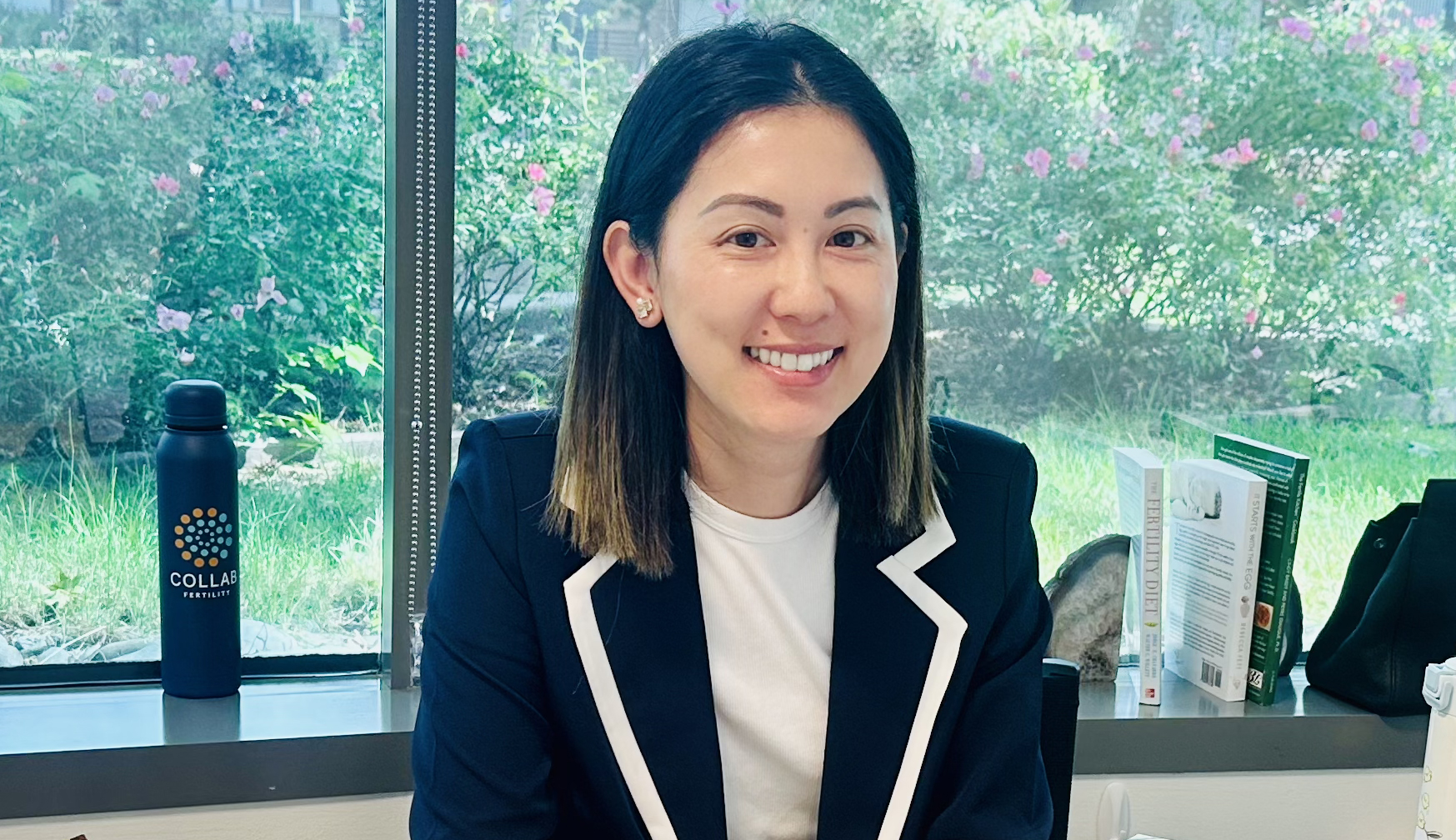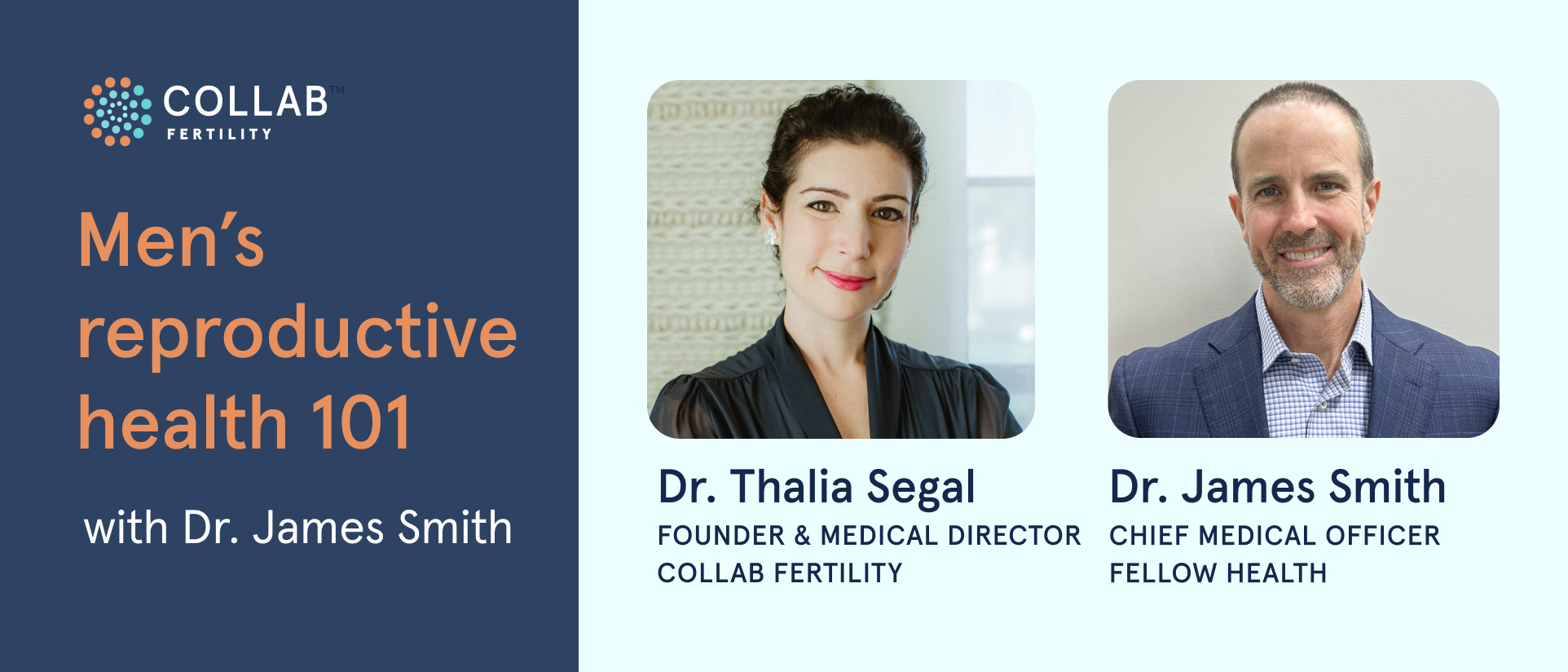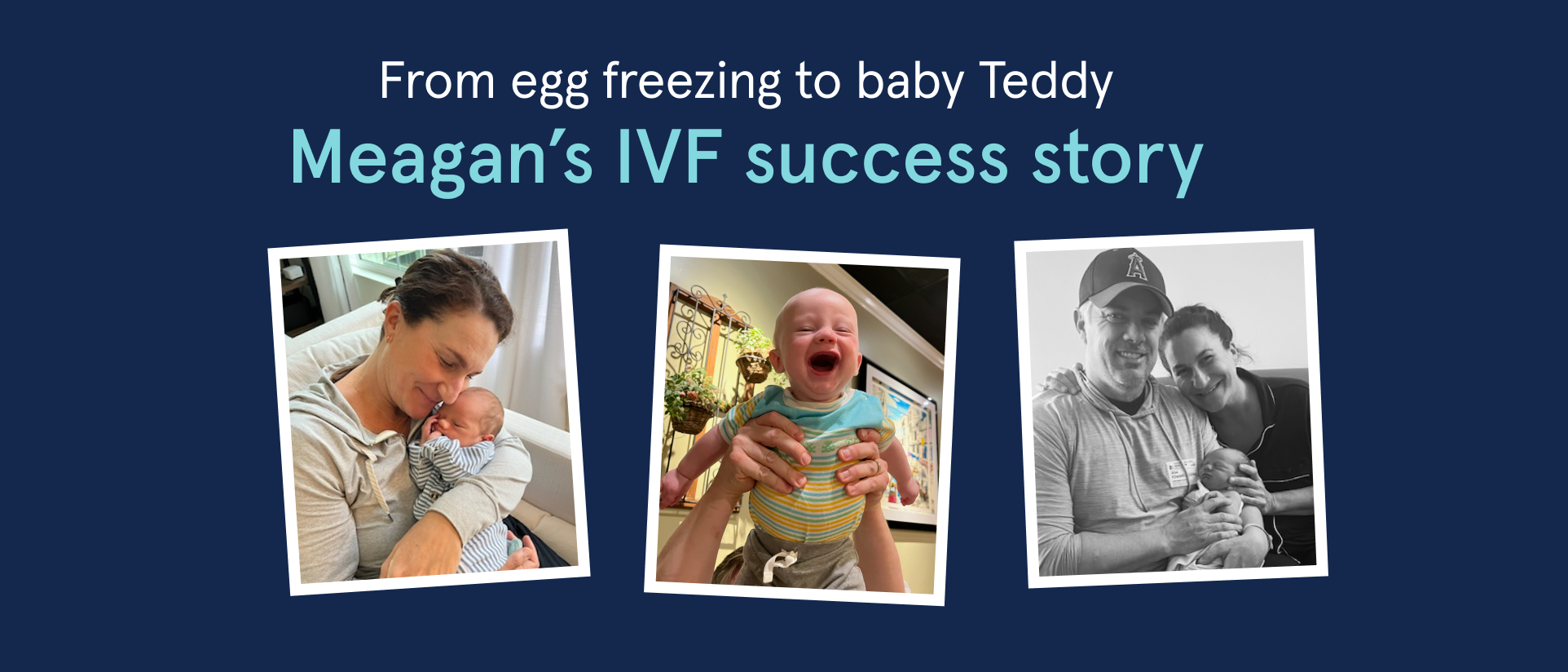
Optimizing fertility The Collab Way: Nutrition insights with Mimi Huang, RD
The Collab Way is the first-of-its-kind, integrative approach to fertility care, combining evidence-based medicine, nutrition, and emotional support to nurture your body, mind, and future.
Did you know that supporting your body with healthy fats, Vitamin D, and fewer environmental toxins can boost fertility for both men and women?
At our San Francisco Bay Area fertility clinic and IVF lab, Collab Fertility, we know that fertility care is about so much more than medications and procedures. It’s about supporting your whole health to give you the best possible chance of success.
That’s why we’re thrilled to welcome Mimi Huang, RD, to our team as our new in-house nutritionist.
With Mimi’s expert guidance — and the launch of our new evidence-based integrative care model, The Collab Way — we’re helping every patient strengthen their foundation for fertility through simple, powerful nutrition and lifestyle changes. Because when your body is nourished, balanced, and supported, amazing things can happen.
We sat down with Mimi to hear more about her background, her approach to fertility nutrition, and how small changes can lead to big results on your path to parenthood.
Q: Can you share a little about your background and what led you to focus on fertility nutrition?
Mimi:
Food and health have always been big passions of mine. I earned my bachelor's degree in Clinical Nutrition from UC Davis, completed my dietetic internship at the University of Delaware, and became a Registered Dietitian. In private practice, I worked with clients on weight management, diabetes, and general health. What I noticed was that for many patients, the long-term goal was starting a family. They wanted to improve their health for fertility. So when the opportunity came up to join Collab, it felt like destiny. I’m thrilled to be part of a team that truly values the connection between nutrition and reproductive health.
Q: What is "The Collab Way," and how does nutrition fit into it?
Mimi:
The Collab Way is about treating the whole person, not just focusing on procedures, but helping patients optimize all areas that can impact fertility. That means supporting people to live healthier lifestyles, avoid harmful exposures like pesticides and microplastics, and build better eating habits that support egg and sperm quality. Nutrition is powerful. Making small, sustainable changes can have a big impact on fertility and on lifelong health.
Q: How do patients work with you at Collab? What can they expect?
Mimi:
Every new patient will meet with me early in their journey. In our first session, I’ll get a thorough understanding of their lifestyle, eating habits, and medical background. I don’t hand out strict meal plans — instead, I empower patients with "meal strategies" based on their needs, goals, and real life. We’ll set personalized nutrition goals together, and I will provide customized handouts like our new "Fertility Plate" guide (and versions tailored for PCOS, male fertility, diminished ovarian reserve, and more). Patients can follow up with me as needed throughout their time at Collab. I'm here as a resource and a cheerleader.
Q: What are some surprising things patients learn about nutrition and fertility?
Mimi:
One big surprise is that fat is essential for fertility! After years of low-fat diet trends, people are often shocked when I recommend full-fat yogurt, whole milk, and healthy fats. Fats are critical for hormone health and nutrient absorption. Patients also appreciate learning about how everyday choices — like food packaging and cookware — can affect toxin exposure and fertility. It’s about looking at the big picture, not just calories or carbs.
Q: What are a few key tips you give patients trying to conceive?
Mimi:
• Eat balanced meals: Every plate should include colorful vegetables, quality protein (like pasture-raised meat, eggs, legumes), quality fats, and healthy carbs (like brown rice or sweet potatoes).
• Minimize toxins: Choose organic options for the “Dirty Dozen” fruits and vegetables when possible, avoid microwaving in plastic, and use stainless steel or wooden cookware.
• Focus on food first: Supplements can help, but my first goal is to optimize nutrition through real foods.
• Vitamin D is crucial: Many people are deficient, and Vitamin D plays a big role in hormone balance and reproductive health, for both women and men.
Q: How does good nutrition support not just fertility, but pregnancy and beyond?
Mimi:
When you’re growing a baby, your body uses your nutrient stores. So nourishing yourself before pregnancy is critical, not just for conception, but for a healthy pregnancy and baby.
The positive changes you make now — like getting enough fiber, healthy fats, and antioxidants — will continue to benefit you and your family for years to come.
Final Thoughts from Mimi
Stay tuned for more about our whole body fertility program, The Collab Way, and get ready to meet Mimi at your next visit!
________________________
Proudly Supporting Local Communities
Collab Fertility is honored to serve families in the East Bay like Danville, Alamo, Orinda, Lafayette, Moraga, Piedmont, and Walnut Creek, as well as many other communities in the Bay Area and beyond, including Oakland, San Ramon, Concord, Pleasant Hill, Santa Rosa, Novato, Napa, Sonoma, and more.
Latest Articles

Men’s reproductive health 101: Dr. James Smith answers common questions about male fertility


